| Title | Memory in neuroscience: rhetoric versus reality. |
| Publication Type | Journal Article |
| Year of Publication | 2002 |
| Authors | Wolpaw, J |
| Journal | Behavioral and cognitive neuroscience reviews |
| Volume | 1 |
| Pagination | 130–163 |
| Date Published | 06/2002 |
| ISSN | 1534-5823 |
| Keywords | Psychological Theory |
| Abstract | The central point of this article is that the concept of memory as information storage in the brain is inadequate for and irrelevant to understanding the nervous system. Beginning from the sensorimotor hypothesis that underlies neuroscience–that the entire function of the nervous system is to connect experience to appropriate behavior–the paper defines memories as sequences of events that connect remote experience to present behavior. Their essential components are (a) persistent events that bridge the time from remote experience to present behavior and (b) junctional events in which connections from remote experience and recent experience merge to produce behavior. The sequences comprising even the simplest memories are complex. This is both necessary–to preserve previously learned behaviors–and inevitable–due to secondary activity-driven plasticity. This complexity further highlights the inadequacy of the information storage concept and the importance of extreme simplicity in models used to study memory. |
| URL | http://www.ncbi.nlm.nih.gov/pubmed/17715590 |
| DOI | 10.1177/1534582302001002003 |
Memory in neuroscience: rhetoric versus reality.
Downloadable:

